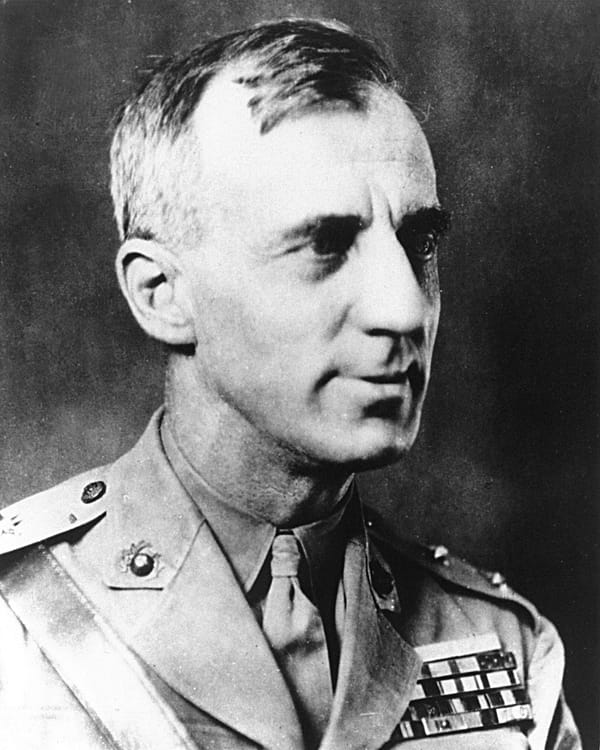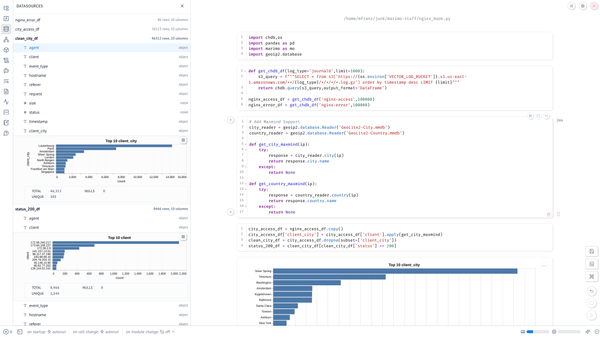Three questions hiring managers should always ask themselves about candidates
Three questions hiring managers should always ask themselves about potential candidates
Hiring is tough (and doesn’t get easier)
I’ve been a hiring manager for the last 7 years or so. Over this time, I’ve probably reviewed nearly 500 resumes, screened 100–150 candidates, interviewed 60–70 people at with some level of intensity (yes, I think that word accurately describes my interview process), and ultimately made less than 40 offers in the field of Cyber-security, Cloud, and Technical Operations.
Years later, thinking about my first foray into people management, I feel pretty good about the small team I built at SAIC and the people I brought on board. However, I definitely made some poor decisions (and not just about hiring) in my second management gig (ZeniMax) and was reflecting on these yesterday while I was at the Wegmans with my kids in Hunt Valley where I used to work. For the most part, I learned from those mistakes when I built out my team at Mandiant/FireEye and when I’ve made the hiring decisions for the global team I run. Staffing is a grueling, sweaty, bloodsport, but it is the most important thing you can do as a leader.
I was certainly no stranger to interviewing when I was a technical lead, but it hasn’t gotten any easier and sometimes just gets old. It just takes so much time if you do it right — and to find the right person at the right time. There is pressure from HR (or your leaders) to fill positions and more importantly, there is a need to bring on new blood to shake things up or address key skill gaps. Then there is the pressure when specific players become the bottleneck or when you become the bottleneck. Just bring somebody on board, damn it! When headcount tightens the pressure increases even more to do something, anything to fill that req. Fight this urge and do not give in.
While there a few obvious tactical criteria and tells (such as the one that most candidates consistently fail at and is impossible to fake) that aren’t worth repeating, the following are three main questions that I ask myself when evaluating candidates lately and I try to answer these on the initial screen or shortly thereafter.
1) Will they be force of clarity?
As teams grow, their needs change. Your needs as a leader change. Things become much more complicated. This is especially true for remote, distributed teams — and particularly global, cross-functional teams that spread across multiple time zones, cultures, and languages where the greatest threat to the business is always confusion.
When a candidate approaches a technical (or business) problem, are they able to speak in concrete, concise terms that make resolution (and action) clearer? How do they describe their previous impact and actions? How would they be perceived by the current members of your team? Would they over-complicate things or be explain complex challenges in a simple way?
(Don’t get me wrong, stirring the pot is good, exploring all angles of a problem is fine, have a nuanced view of the world is desirable, but unless they can bring it back to closure, it doesn’t help.)
How have they defined (if not always solved) the big problems faced by their previous teams and organizations? After an hour or more talking, is it still fuzzy in your mind exactly what they did and the impact to the business. Senior engineers (or team members that want to be a senior engineers) must be able to cut through the range of choices, clearly identify the tradeoffs, and present the possibilities of a technology or process choice to their peers and leaders alike so that talk turns talk into action.
2) Do they know who they are and the kind of problems they want to solve?
The workaday world is confusing. Especially in the technology field with so much change and disruption and so many opportunities and choices at our feet. We all struggle with what we want to do (or even who we want to be) when we grow up. Anyone that is serious about taking risks and pushing themselves probably wonders what they hell they are doing 5–10% of the time. I know I do.
But when you are hiring, you don’t have the luxury of waiting for somebody to figure out what what they want to do and who they want to be. This introduces too much uncertainty (and risk) into the equation of whether or not they will be a heavy hitter and will truly add value to the business from the first Friday. That doesn’t mean candidates must have everything figured out (who does?), but it does mean that they must a solid center of core values, practices, and beliefs where they are crystal clear of what they like doing and the problems they like solving.
Even if they can’t always clearly articulate, it is your job as their prospective manager to tease this out, to help them map and reflect on their recent career trajectory to see if the lines of what they what want to do and want you want them to do, actually intersect. You must be honest with them (and vice versa) because neither of you want to be in a position 3, 6, or even 9 months later wondering why there wasn’t a fit and you are having hard conversations.
3) Are they the the right person for day and the age?
In any dynamic environment, the underlying parameters are always changing. Your world is not standing still. Think of slot a slot machine rotating (sometimes you need all lemons, other times you need all cherries) or the gears and clocks spinning like that intro to Doctor Who as the TARDIS spins in time and space.
Team size. The maturity of the product or service. The number of customers you have. The type of customers you have. The specific technical challenges. The sophistication (or simplicity) of your tools and processes. Are you fighting fires or building things? Does the culture need to be changed and challenged or do you have something that works well enough? For how long? Members of your current team (are hopefully) growing. Don’t forget this when making decisions. Try to project how your current team (and individual) will grow.
I’ve seen these cycles last as short as 3–4 months and as long as 6–9 months. Sometimes might as well be in a different company, which means different folks are necessary for different times. Be clear of who you need when.In my current role, I swear it is has been like working in 5 or 6 different jobs (or teams) over the last two years. While there is definitely some continuity, sometimes you have to literally rewrite your job description based on where you are at and where you think you will be by the time the candidate is up to speed.
BTW, I’m still looking for DevOps folks for my team in North America (remote) and or in our Noida office in India.
So If you are looking to join a remote Operations team working on interesting challenges software licensing and monetization with growing list of impressive customers, find me. That is your first task of the the hiring process.
(Oh yeah, be sure to have “good enough” answers to these questions.)




